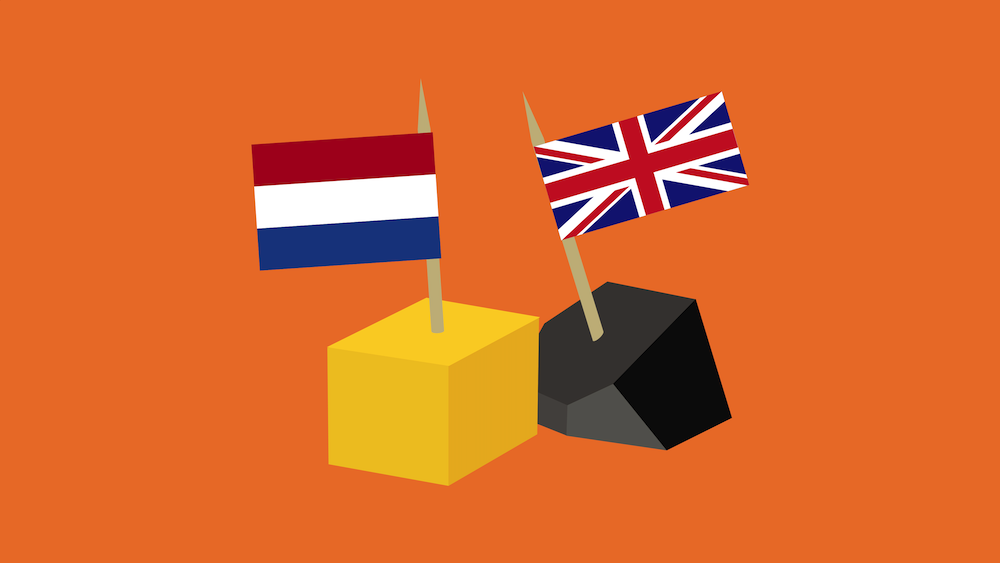(Editor’s note: This is Pt. 1 of a two-part series about becoming a naturalized citizen of the Netherlands. You can jump to Pt. 2 here.
Four years ago, my son and I moved to the Netherlands from the United Kingdom after I married a Dutch gentleman. This was the year before Brexit, with Great Britain leaving the European Union, and all the freedom of being part of the European Union and being able to live and work in the various member countries being removed. As someone who gets nervous about bureaucracy and red tape, I wanted the minimum complications as I moved into getting married and moving to the Netherlands, so we planned a “pre-Brexit” wedding.
As I had married a Dutch man, my son (a minor) and I were granted residency permits under the withdrawal agreement, meaning that we would be granted Dutch residency for a period of five years. For traditional expats, you have to live in your new country for five years before you can apply for citizenship, but marrying a Dutch person gives you an exemption and you can apply sooner.
For those that don’t want to apply for citizenship, you can simply keep renewing your residency.
Without our Dutch residency permit we would be beholden to the rule that now applies to all Brits abroad – a standard visit from the UK to the Netherlands has to be less than three months in duration. The reverse of this applies to Dutch people now travelling to the UK in a post-Brexit world, three-month visits are allowed.
On our travels between the Netherlands and the UK, if we failed to show our residency permit at the border crossing, our passports would be routinely stamped so that they could track the date we had arrived or left. A couple of times I was able to show a picture of my residency permit if I had left it behind, and immigration officials were okay with that.
Once my son and I had acclimatised in the Netherlands (and survived the various pandemic lockdowns), we researched the process for securing our Dutch passports and becoming properly “Dutch.”
What are the benefits of having a Dutch passport?
- You get the benefit of being in the EU and can live, work and travel freely across any of the European Union states.
- If you choose to live outside of the EU for a couple of years, including the UK, you always have the option to move back to the Netherlands without the bureaucracy of applying for a new residency permit.
- You get to vote in Dutch elections.
- Travel ease at border points.
- EU prices for EU universities. This was a big one for me and my son. Many European universities have courses that are taught in English, and tuition fees are much lower than what we are used to in the UK. It was a no-brainer to work out the benefit of securing our Dutch citizenship in this regard.
- Opens up ease of travelling and working in countries that have a Dutch connection: eg., Dutch colonies such as Surinam.
Residency versus citizenship
Of course, I have met many internationals in the Netherlands who do not have the option to acquire Dutch citizenship without having to give up their home country citizenship. There are people that have lived, worked, and raised families here with residency status. There is the option to become Dutch citizens, but in so doing they would need to surrender their original passports.
This is not so appealing to those who have family in the UK, and still want to keep the option open to return there at some point. As residents rather than citizens, they also do not have the option to vote in Dutch elections, which seems a bit of a sticking point for people that have contributed to the economy through taxes, to not have a say on policies such as housing and healthcare that affect them and their families.
For my son, who is a teen, securing a Dutch passport was a priority, even aside from wanting to save on university fees. As he is a year off the age where he will become a legal adult, I was worried that should he want to return to the UK for any length of time, that would make it tricky to renew his residency in the Netherlands if it expired in that timeframe.
I spoke with a couple of other Brits who had experienced the same issue. Families who had been in the Netherlands for a while, with grown-up children who had moved away either for studies or work, found themselves in the post-Brexit situation that their children could not return to live with their families.
This was a situation I was keen to avoid.
So as a resident you get (nearly) all the benefits of being a citizen, but only so long as you are living in the country. Once you leave, you would have to re-apply for residency.
Dual citizenship
For me and my son, we are lucky – as I am married to a Dutch man, I am eligible to have dual citizenship.
If I came here any other way – on a work visa for example – I would not have that option. I think this is a real shame, and I’m not sure why people have to choose.
No one knows what their future may hold, and any kind of change of circumstance can affect where people want to live. A simple thing such as wanting to care for your parents in their old age could influence a decision to return to your home country. And as much as I am happy to live in a new country, I don’t think I could ever give up my citizenship of my birth country, especially as I lived there for the first 49 years of my life.
I’m glad neither my son nor I had to make that choice. I am “pro” dual citizenship and feel this is a more humane way of allowing people to migrate between countries.
––––––––––––
See more about citizenship and passports here in Dispatches archives.

Rachel Arts
Rachel Arts originally is from the UK but relocated to Eindhoven in 2019 with her husband. Rachel is an entrepreneur. Her business, Talentstorm, draws on her 20-plus years in corporate learning to help develop individuals and organisations. She loves to write about all things related to personal development, self-directed learning and modern learning practices. To learn more more, check out the Talentstorm website here or follow her people-development blog here for regular tips to achieve work and career goals.














